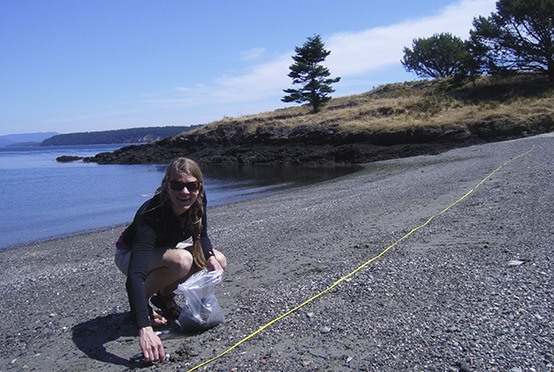Many people are surprised to learn that two kinds of marine fish, Pacific sand lance and surf smelt, use the upper portions of sand and gravel beaches to spawn and incubate their eggs. Smelt and sand lance are part of a small group of species of schooling fish known in our area as “forage fish’’ for the important role they play as food for larger fish, seabirds and marine mammals.
Currently, spawn activity has been documented along 10 miles of San Juan County’s beaches, comprising just 4 percent of total shoreline length and 10 percent of the non-bedrock shores.
“Because these fish rely on beaches for incubating their eggs, they are at risk from the impacts of shoreline development activities like vegetation removal and bulkhead installation. Knowing which sites are used by forage fish helps us focus work with interested public and private property owners to protect or, in some cases, restore spawning habitat,” said Tina Whitman, science director at FRIENDS of the San Juans.
With funding support from the Washington Department of Fish and Wildlife and the State Salmon Recovery Funding Board, FRIENDS staff and trained volunteers are conducting additional surveys throughout the county.
To date, seven previously unknown spawn sites have been mapped on Stuart, Sucia, Lopez, San Juan and Orcas and field work will continue through the end of the year. To learn more, volunteer, or request a survey for your beach, contact Tina Whitman at 378-2319.



